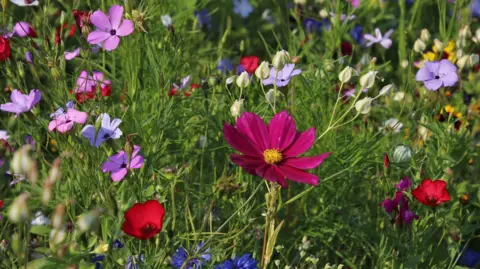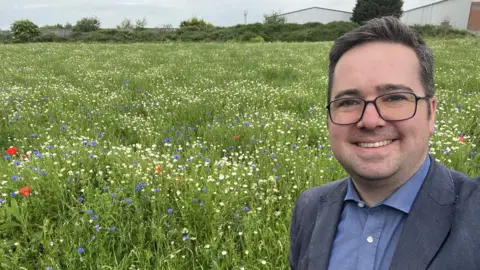'Urban greening strategy' to phase out weed killer
 Stock image
Stock imageA strategy to increase greenery in a bid to tackle climate change is set to be approved amid plans to phase out use of a controversial weed killer.
As part of the Gloucester Urban Greening Strategy Gloucester City Council wants to plant more greenery to address the threat of climate change and extreme weather.
Its cabinet will consider the strategy this week as it prepares to phase out the weed killer glyphosate, which can harm insect populations and biodiversity.
The council hopes to harness the natural benefits of trees, green roofs, hedgerows, and green screens to help tackle climate change.
Glyphosate is used in very small quantities across Gloucester and, if eaten in large amounts, can have health impacts on small mammals and pets, reports the Local Democracy Reporting Service.
Councillors may also decide to stop spraying the city centre where weeds are usually kept to a minimum due to high footfall.
Feedback from residents will be considered and the move will be kept under review.
However, the weed killer will still be used to manage obstructive growth or treat invasive and dangerous species, including Japanese knotweed.
 Sebastian Field
Sebastian FieldThe strategy will also consider the introduction of rainwater gardens to collect excess surface water and reduce pressure on sewers during high rainfall.
At a recent meeting, Alastair Chambers, Independent councillor, criticised the use of the "cancer-linked" weed killer.
"This chemical, glyphosate, has been banned or heavily restricted in over 30 countries, including France, Germany and Austria," he said.
"Yet here in Gloucester, the administration persists in spraying it on our streets and green spaces, ignoring mounting scientific concerns and international precedent."
Sebastian Field, Liberal Democrat councillor, said his group is committed to phasing the chemical out.
He said: "By reducing its use alongside our plans to increase the amount of green space in our city, we will do our bit to try to reduce the alarming decline in insect populations."
Follow BBC Gloucestershire on Facebook, X and Instagram. Send your story ideas to us on email or via WhatsApp on 0800 313 4630.
